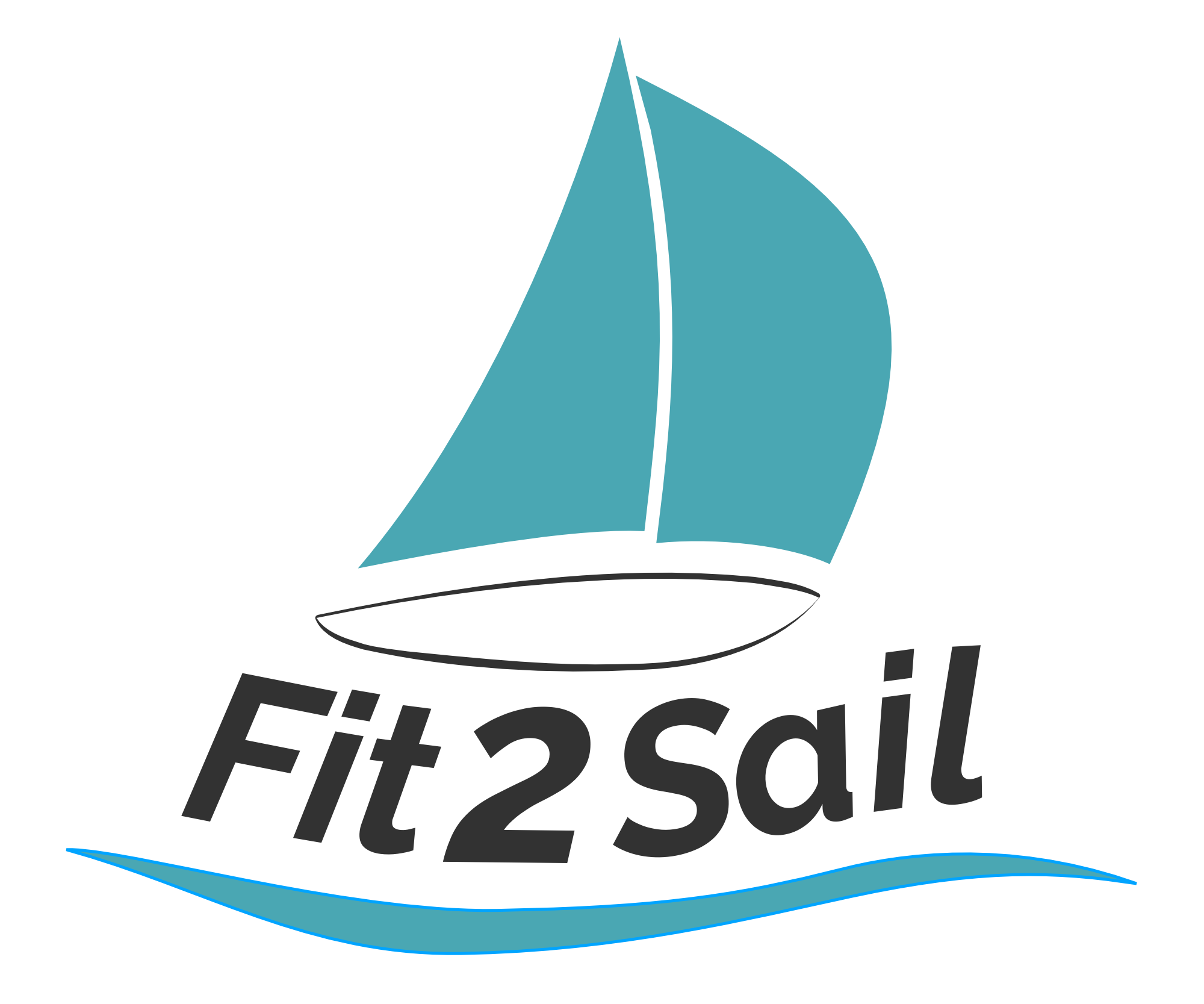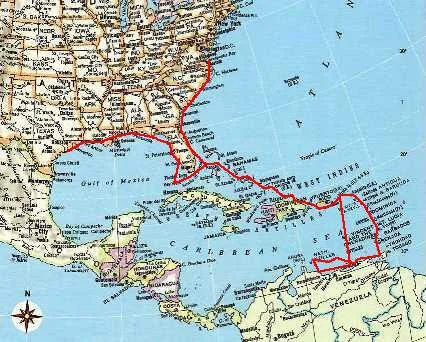What If We Run Out of Money?
A couple of weeks ago, I asked readers to share their pressing questions about this whole cruising lifestyle thing. Basically, while this blog exists to help us keep a record of thoughts and projects on this next adventure, I’d also really like for it to help others. This is the first blog post written specifically in response to those questions; there will be more!
Gratuitous sunset shot.
There were a number of “what if . . .” kinds of questions. What if we run into pirates. What if we can’t stand each other. What if the dog/cat/hamster is miserable. What if the weather stinks. What if we run aground, miss our families, spring a leak, get sick . . .
And the big one, for close to 30% of the people who answered. WHAT IF WE RUN OUT OF MONEY?
The money question is huge. Run a Google search on “how much does it cost to sail around the world” and it’ll take a little over a second to return more than 60 MILLION hits. No matter what your (still imaginary) cruising budget might be, you can find ample evidence to support your theory that yes, that is what it will cost you. I can spend endless time telling you that it all depends. Depends on the boat, the location, and how you think about money and spending it.
My other piece of advice when it comes to researching evidence to prove that your budgetary idea is sound is to be careful. So so so very many of the well-meaning cruisers posting “this is what it costs” posts conveniently leave out entries. The eating out doesn’t count, because they’re with friends. Or the marina costs don’t count, because mostly they anchor out. The insurance doesn’t count, or the boat parts don’t count, or the wifi data plans don’t count. I’ve seen it referred to as the “not counting” entry, and it can completely screw with the actual reality of the money involved.
The budget question is largely an academic one, when it comes down to it. You’ll either have enough funds (whatever that definition is) or you won’t. All the planning in the world doesn’t mean a thing when you’re staring at an empty bank account. So what do you do then?
As is fairly usual with any cruising question, the answer is “it depends.” Gee, thanks a lot.
But hang on a second. Look at your life on land and ask the same question now. Let’s say you were to lose your job and couldn’t find another one that brought in the same amount of cash. What would you do if that bank account came up empty? You might:
start dumpster diving outside of grocery stores for food
sell your major possessions and live in your car
sell everything you own except 2 pairs of underwear and a pair of jeans and a couple of shirts (this might not be advisable if you’re trying to find an office job, just as a caveat)
create a side hustle really super fast
move in with family or friends
apply for any and every job you could see with a “help wanted” sign, including places you never thought you’d work. Including places that were in locations you never thought you’d live.
babysit, house sit, pet sit, mow lawns, scrub toilets
beg on a street corner
The point is, you’d scramble and figure something out. It might not be ideal, and it’s likely not the way you’d planned on life going, but you could definitely figure things out.
This question seems to loom larger when you’re planning on retiring with the hope of not having to go back to work, when you’re looking at your savings and fretting about them running out before you want them to. It still looms even if you’re young and taking cruising in chunks. Or you’re whatever age you are trying on this lifestyle.
Joshua Slocum, the first recorded person to sail solo around the world, bartered and bought cheap items when he stopped places; he left with $200 in his pocket and (if I remember right) came back with about the same amount. Annie Hill, in her incomparable book Voyaging on a Small Income, remembers buying 49 cans of sardines in Antigua because it’s all they could afford - they could not buy the 50th can. Behan Gifford, of Sailing Totem, talks about choosing a sailing destination based on where they could find decent work - and cashing that first paycheck when the level in the bank account was $100. Lin Pardey, in many of her Serrafyn titles, discusses their philosophy around cruising: they sailed until the money was about to run out, then sailed somewhere they could work to refill the kitty.
Our original plan, back in the early 1990s, was to circumnavigate the Caribbean and, if we were lucky, our money would last 2 years. We never went west of Bonaire, and we stayed out for 3 years. We scrimped and lived frugally (and borrowed a little bit at the very end, because the offer to help sail across the Atlantic was not one we could pass up) and eked out our freedom for a full year longer than our WAG said we could. Other than doing the basics of not eating out, not staying in marinas, and doing all our own maintenance, we figured out things to bring in funds along the way, like taking on the home-schooling of another cruising family who were knee-deep in boatyard projects and couldn’t handle their 3 kids and the education. Jeremy built dinghy chaps for people in Trinidad, taking advantage of inexpensive canvas there.
We wrote down every single penny we spent, every single day. Using one of those day planners with a small square for each day of the month, we faithfully penned (in teeny tiny print) where we were, what we ate, and what we spent on what. This is how we knew we didn’t have to turn north midway through year 2 but instead could stay in the Caribbean.
We all do the best we can to plan and budget. I’m a huge fan of You Need a Budget as a budgeting tool but know that many people find the idea of paying for a budgeting app to be an insane idea. However you look hard at the nuts and bolts of money, I suggest you bite the bullet and start writing down your costs and income. It’s absolutely eye-opening to see entries like “$.77 Doubles” (a Trini street food) add up, and amazingly liberating to see days when there is nothing added to the cost column.
It’s my firm belief that we need to look at the worst case scenario (like asking the question, “What if we run out of money?”) and answer it, putting in place thoughts and practical actions you could take. If you’re not willing to take those actions you identify, then you might need to alter your plans ahead of time.
All the plans and hopes can be dashed with a bad accident, or an unexpected emergency; I hope you’ve built in a cushion to absorb such a thing. In terms of regular day-to-day living, though, if you’re tracking your expenditures as you go along, comparing the reality to what your idea was ahead of time, you won’t be surprised.
For us, if it looks like we’re not on track with our budget, our plan is multi-faceted. We’ll tighten our belts in terms of food spending (likely to be our largest expense on an ongoing basis) and figure out our cruising grounds with an eye to less pricey places. We won’t fly the kids in for college vacations and forego any trips back home. We’ll work harder on side hustles like FastSeas and online courses. If worse comes to worse, we’ll stop somewhere for a while and do work work of whatever kind we can legally and locally. In short, we’ll figure it out.
What happens if you run out of money? Well, what DOES happen? What does that mean to you? And what are you willing to do in response?
Cruising is about flexibility and communication. Sometimes, neither the need for flexibility nor the act of communication is particularly fun, but they do make life much, much smoother in the long run.
*Links, including those to some books and to YNAB, may contain affiliate links. As an Amazon Affiliate, I earn through qualifying purchases.


